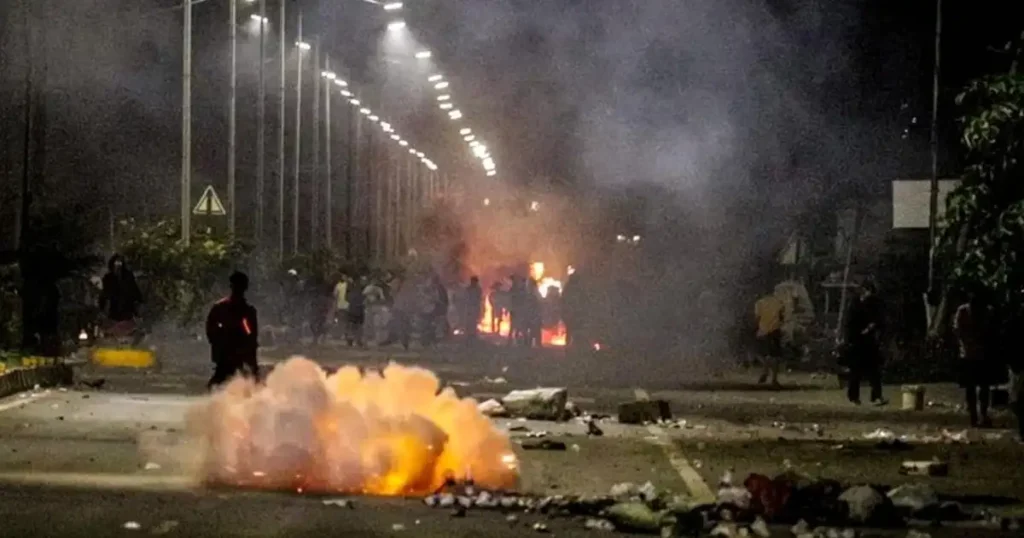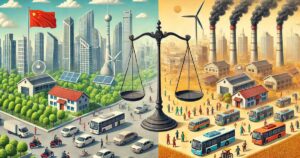Recent Ethnic Violence in Manipur.

Introduction
Manipur, a northeastern Indian state, has been embroiled in ethnic violence between the Meitei and Kuki communities since May 2023. These clashes have exposed deep-seated ethnic, political, and social divides, raising concerns about governance, human rights, and the future stability of the region.
Historical Context
The roots of the conflict lie in historical grievances and ethnic differences. The Meitei community, predominantly Hindu, resides in the Imphal Valley, which accounts for about 10% of the state’s area but holds 57% of the population. In contrast, the Kuki and Naga tribes, predominantly Christian, inhabit the surrounding hilly regions, constituting 43% of the population and covering 90% of the land area. Tensions have been fueled by disputes over land, political representation, and resource allocation.
Recent Violence
The current wave of violence began after a controversial court ruling in March 2023, granting Scheduled Tribe (ST) status to the Meitei community. This decision was seen by tribal groups, including the Kukis, as a threat to their protected lands and affirmative action benefits. Protests escalated into violent clashes, with armed groups on both sides targeting civilians and infrastructure. Over 200 people have died, 60,000 have been displaced, and several villages have been destroyed.
Role of Governance
The BJP-led state government under Chief Minister N. Biren Singh, an ethnic Meitei, has faced criticism for its handling of the conflict. Allegations include biased policies favoring the Meiteis, lack of protection for minority groups, and polarizing rhetoric. For example, the government has accused Kuki groups of harboring illegal immigrants from Myanmar and engaging in drug trafficking, further straining relations between communities.
Social and Economic Dimensions
The Meitei-dominated political establishment has long been accused of neglecting the hill regions, where Kukis and other tribes reside. Basic infrastructure like roads, schools, and hospitals is severely lacking in these areas, forcing many tribals to migrate to the valley for better opportunities, thereby exacerbating tensions. The Kukis have also accused the state of undermining their identity through land evictions and displacement.
Impact on Human Rights
The violence has led to severe human rights violations, including reports of sexual violence, extrajudicial killings, and destruction of property. Both state and non-state actors have been implicated in these abuses. The ongoing curfews, internet bans, and military interventions have also raised concerns about freedom of expression and access to information.
National and International Reactions
The conflict has drawn national and international attention, with human rights organizations calling for immediate intervention to protect vulnerable communities. The central government’s response has been criticized as inadequate, with allegations of political opportunism overshadowing efforts for peace and reconciliation.
Way Forward
To address the conflict, several measures are necessary:
- Dialogue and Mediation: Facilitating discussions between Meitei and Kuki leaders to address mutual grievances.
- Inclusive Governance: Ensuring equitable representation of all communities in political and administrative processes.
- Rehabilitation and Justice: Providing relief to displaced individuals and ensuring accountability for human rights abuses.
- Long-term Development: Investing in infrastructure and economic opportunities for tribal regions to bridge the socio-economic gap.
Conclusion
The ethnic clashes in Manipur are a stark reminder of the complexities of India’s diverse social fabric. Addressing this crisis requires not only immediate conflict resolution but also long-term policies that promote inclusivity, justice, and equitable development. Without these measures, the region risks prolonged instability, affecting its social and economic progress.






